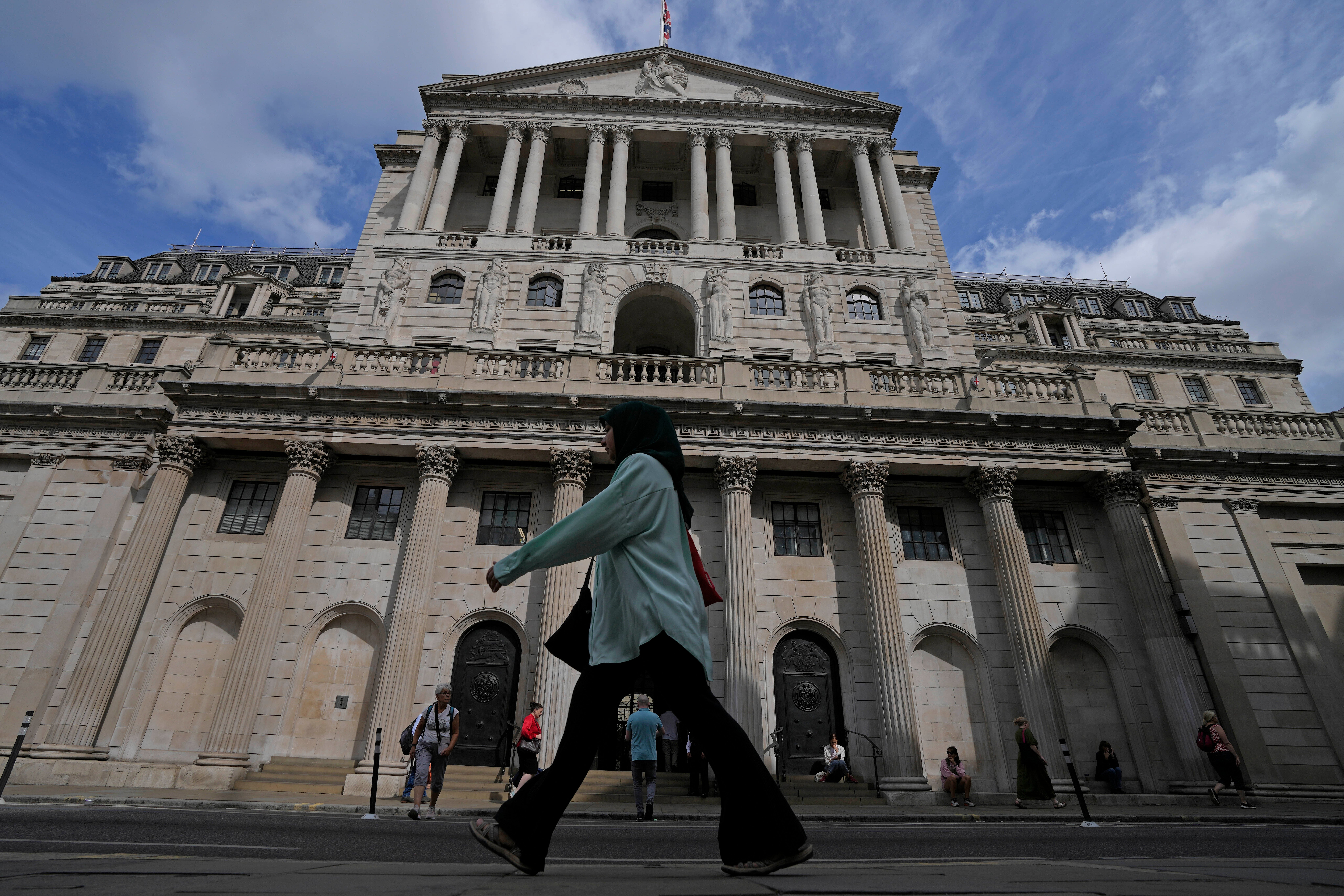The Bank of England will have to act on rates with the pound in virtual free fall
Sterling slumped to a three-year low against the dollar on Friday as the government prepared next week’s inflationary budget. A 0.75 percentage point rise in interest rates seeems likely this week, but the Monetary Policy Committee is not fond of aggressive moves

The Bank of England’s Monetary Policy Committee (MPC) belatedly gets to work this week after the delay caused by the suspension of its scheduled meeting “as a mark of respect” to the late Queen.
A large part of the City is betting on it imposing a 0.75 percentage-point increase in rates, the sharpest since 1989 as the government prepares an emergency budget, although there is a sizeable camp still banking on 0.5 percentage points.
In favour of the bigger number is the fact that central banks often hunt in packs. The US Federal Reserve, the European Central Bank and several of their peers have already imposed rises of this degree.
Rather lost in the fog created by the Queen’s death is also the fact that the UK is currently in the midst of what very much looks like a currency crisis.
It was richly ironic that the pound slumped to a 70-year low against the dollar on Friday, which was also the 30th anniversary of its ejection from the European Exchange Rate Mechanism. Europe was a problem for the Tories then, just as it is now.
The ERM debacle shattered the party’s reputation for economic competence and ultimately sowed the seeds for Labour’s thumping 1997 victory, which brought to an end an 18-year period of Conservative hegemony.
Are we on the cusp of a similar moment, albeit with different causes?
The pound has declined by 16 per cent against the dollar over the last year. Needless to say, that is highly inflationary. It makes the UK’s imports much more expensive and it argues for an end to the Bank’s favoured gradualist approach.
Catherine Mann, an external member of the MPC, called for a more aggressive approach in a speech a week ago. She said the UK might need a “fast and forceful” monetary tightening.
Mann is among a trio of external MPC hawks who have consistently voted for half-point rises during the current cycle. The rest of the committee had backed a quarter-point move until the most recent meeting went eight to one for a half-point rise.
One of the three, Michael Saunders, has since left to be replaced by Swati Dhingra, associate professor of economics at the London School of Economics. But I would expect Mann and Jonathan Haskel to vote for the 0.75 percentage-point rise at the forthcoming meeting. The fourth external member, Silvana Tenreyro, is perhaps the MPC’s most dovish member and she would seem likely to favour 0.5, or maybe even less. This would leave the “in-house” team as the swing voters.
It is worth noting that inflation dipped a bit – to 9.9 per cent – in August. A fall in petrol prices was the main help (mercifully, the Office for National Statistics did not postpone the release of the figures as “a mark of respect” for the Queen).
But there wasn’t really much comfort to be had from them. Food prices are still running hot. Wage settlements continue to fall well below the rise in the cost of living. The most recent retail sales figures were, meanwhile, rotten (sales volumes fell by 1.6 per cent), which played into recession fears and sterling’s woes.
That’s the economic backdrop. But how much of a role will politics play in the decision? I would expect the Bank to pooh pooh the notion, pointing to its independence and mandate.
Yet it must at least be at the back of governor Andrew Bailey’s mind, and perhaps some of his colleagues’ too.
Backbench Tory MPs have been sniping at Threadneedle Street. The Truss campaign did the same during the Conservative leadership battle. It damped down the rhetoric only when it seemed clear that Ms Truss was going to win the day.
Some economists think the Bank will have to respond to the energy price support her government has delivered by increasing rates by more than they otherwise would have because the plan will serve to pump a large amount of extra money into the economy. This despite the fact that it will also take an estimated four to six points off inflation’s peak. This is economics. There’s a reason it has been called “the dismal science”.
Even more obviously inflationary are the government’s plans to give fortunate Britons a bung, courtesy of tax cuts, abandoning the concept of fiscal responsibility, which has to varying degrees been the party’s calling card. International investors, and the markets, are running scared of this. It is another reason for the pound sinking like a stone.
The Bank will be aware that it will be blamed should inflation remain stubbornly high, even if the cause is government policy. Never take responsibility was Boris Johnson’s mantra. Why would Liz Truss be any different? She’s shown every sign that she intends to lather, rinse, repeat.
All of this points to some very bad news for mortgage holders coming off fixed-rate deals. The Bank has only the blunt instrument of rates to bring inflation down. It is going to have to use them quickly and forcefully, to paraphrase Mann.
There is one consolation for Bailey and his colleagues: voters are inclined to blame the government of the day if they’re feeling poor, even if one of the causes is the MPC bringing the hammer down.






Join our commenting forum
Join thought-provoking conversations, follow other Independent readers and see their replies
Comments